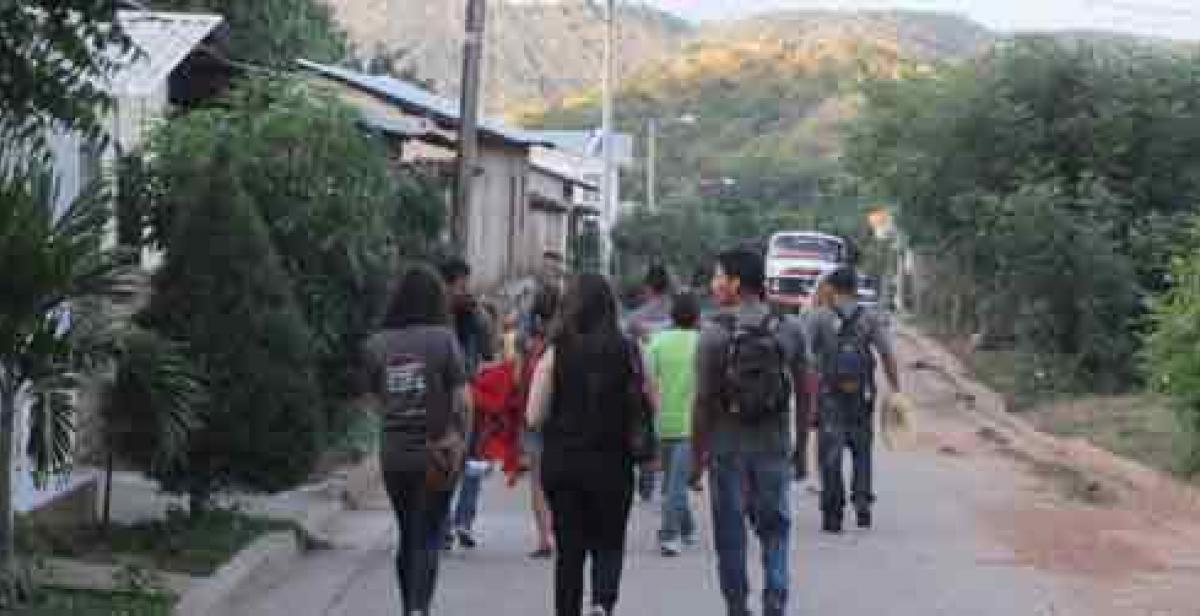Our ICS experience began with a whistle stop tour of Managua. Horns blowing, traffic racing and market stalls lining the streets gave a lively first impression of the Nicaraguan capital. The city streets are a collection of low rise buildings thrown together with a distinct lack of structure; the reason for this being a 6.2 magnitude earthquake which left the city in tatters in 1972. Despite best intentions, the city was never rebuilt properly and a maze of streets and mish-mash of buildings have sprung up in the meantime. The cathedral in the heart of the city was one victim of the earthquake and has remained empty and out of bounds ever since.
This shattered appearance is deceiving, as behind what meets the eye, is a city bursting with history, with a rich culture of arts, music, and pride for the natural environment. A trip to the national museum took us through the formation of the natural landscape and the history of art in Nicaragua, with plenty of murals illustrating revolutionary movements.
This rich culture was reflected when we met the Nicaraguan volunteers we would be working with over the next 10 weeks. Despite only three out of the ten of us being able to speak Spanish, it was amazing how quickly we bonded during training sessions through playing sports, dance and music. The Nicaraguan volunteers belted out their national anthem for us, while in return we gave a rendition of Bohemian Rhapsody (not quite as impressive to say the least!). A trip to the football stadium followed which soon turned into a competitive football match.
The few days of training enabled us to explore and understand each other’s cultures and mindsets around the themes we will be working on, including gender, environment and health. We were asked which we thought best described the term ‘development’ from a series of photos based on the themes of healthcare, women in work, infrastructural development and men holding street stalls. There was a distinct divide in the outcome, with most UK volunteers opting for healthcare, the male Nicaraguan volunteers choosing the street stalls, and female Nicaraguan volunteers opting for women in work; some interesting themes to further explore later in our time here.
We learned a lot in the first few days – that language doesn’t have to be a barrier, and that the appearance of a city doesn’t always reflect what lies beneath. We’re now ready and raring to head northwards and dive into community life in Dipilto and Las Manos!
Naomi King, UK volunteer in Nicaragua.
Photo of previous volunteers in Nicaragua



